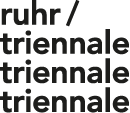Morton Feldman / Samuel Beckett: Neither
Music theater, production by Romeo Castellucci
- (c) Stephan Glagla
- (c) Stephan Glagla
-
(c) Ruhrtriennale, Video: Matthias Mohr, 2014
- (c) Stephan Glagla
- (c) Stephan Glagla
- (c) Stephan Glagla
- (c) Stephan Glagla
- (c) Stephan Glagla
- (c) Stephan Glagla
- (c) Stephan Glagla
- Romeo Castellucci(c) Stephan Glagla
Composition —
Musical Direction —
Direction and Stage —
Assistant Direction —
Dramaturgy —
Sounddesign —
Assistant Light —
Giulio Bernardi
With —
Shows
September
-
Sat 6Sep
20.30Morton Feldman / Samuel Beckett: Neither on 6. September 2014 at 8.30 PM -
Sun 7Sep
20.30Morton Feldman / Samuel Beckett: Neither on 7. September 2014 at 8.30 PM -
Fri12Sep
20.30Morton Feldman / Samuel Beckett: Neither on 12. September 2014 at 8.30 PM -
Sun14Sep
20.30Morton Feldman / Samuel Beckett: Neither on 14. September 2014 at 8.30 PM -
Fri19Sep
20.30Morton Feldman / Samuel Beckett: Neither on 19. September 2014 at 8.30 PM -
Sat20Sep
20.30Morton Feldman / Samuel Beckett: Neither on 20. September 2014 at 8.30 PM
Recommendations
saturdays
20. September 2014
Jahrhunderthalle Bochum
Choreography for 40 Machines to Music by Igor Stravinsky
15. August 2014, 16. August 2014, 16. August 2014, 17. August 2014, 17. August 2014, 19. August 2014, 20. August 2014, 21. August 2014, 22. August 2014, 22. August 2014, 23. August 2014, 23. August 2014, 24. August 2014, 24. August 2014, 25. August 2014
Gebläsehalle, Duisburg
A production by Ruhrtriennale.












Press Comments